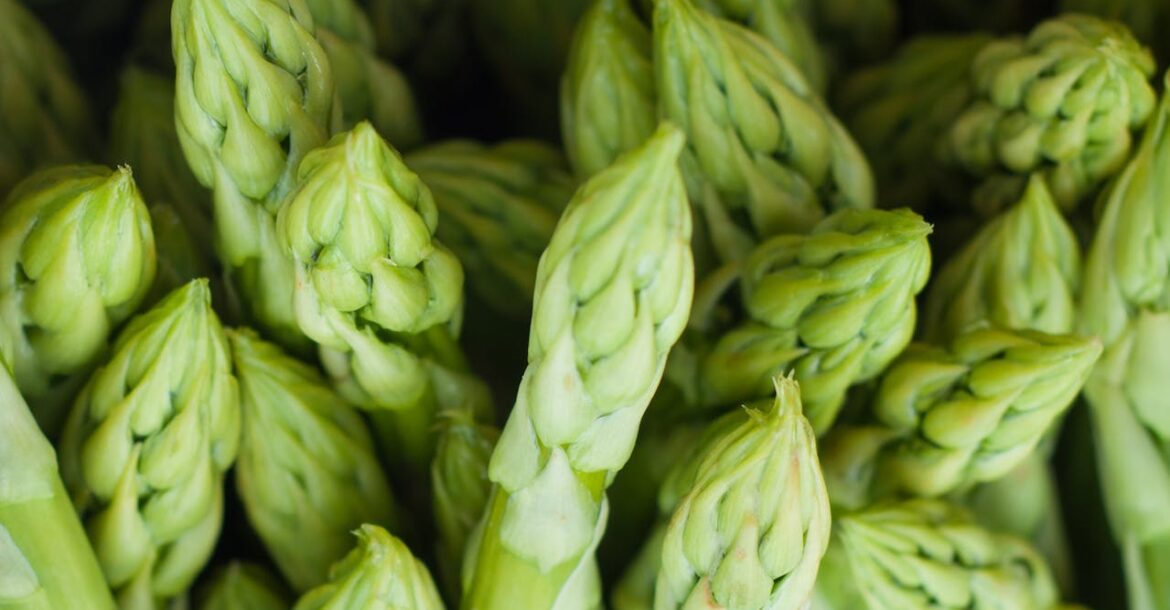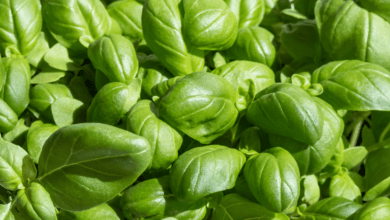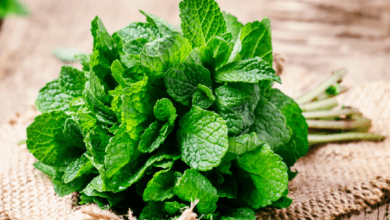
The health benefits of asparagus extend far beyond its nutritional value. Crunchy, succulent, and bursting with flavor – asparagus isn’t just a culinary delight; it’s a powerhouse of nutrients with a plethora of health benefits. From boosting digestion to being a fantastic source of essential vitamins and minerals, asparagus is a delicious way to supercharge your well-being. Whether you prefer it roasted, grilled, or sautéed, the versatile vegetable offers a delectable and healthful addition to any meal.
Nutritional Value of Asparagus
Asparagus, scientifically known as Asparagus officinalis, is a nutrient-dense vegetable that packs a powerful nutritional punch. This vibrant green veggie is an excellent source of folate, vitamin K, vitamin C, and vitamin A. Additionally, it provides essential minerals such as potassium, phosphorus, and trace amounts of iron. Asparagus is also low in calories and high in fiber, making it an ideal choice for those looking to maintain a healthy weight and improve digestive health. The combination of these nutrients makes asparagus a valuable addition to a well-rounded diet, offering a wide array of health benefits.
Asparagus is particularly renowned for its high folate content, which is essential for supporting overall health, especially during pregnancy. Folate plays a crucial role in DNA synthesis and repair, making it vital for proper cell division and growth. It also aids in the production of red blood cells and helps prevent neural tube defects in developing fetuses. With its impressive nutrient profile, asparagus stands out as a versatile and nutritious vegetable that can contribute to a well-balanced and healthful diet.
Health Benefits of Asparagus
The health benefits of asparagus extend far beyond its nutritional value. This vibrant vegetable is loaded with antioxidants, including vitamin E and glutathione, which help combat oxidative stress and reduce the risk of chronic diseases. Asparagus also contains anti-inflammatory compounds such as saponins and flavonoids, which contribute to its potential in reducing the risk of heart disease, certain cancers, and other inflammatory conditions. Furthermore, its high fiber content supports digestive health by promoting regularity and aiding in the prevention of constipation. The combination of these health-promoting properties makes asparagus a valuable addition to a well-rounded diet.
Moreover, asparagus is an excellent source of prebiotics, which are beneficial for the growth and activity of beneficial gut bacteria. This, in turn, supports overall gut health and immune function. The presence of prebiotic fibers in asparagus also contributes to improved nutrient absorption and may help reduce the risk of certain gastrointestinal disorders. Additionally, the natural diuretic properties of asparagus may aid in reducing bloating and supporting healthy fluid balance within the body. With its diverse array of health benefits, asparagus proves to be a worthy addition to any health-conscious individual’s diet.
Also read: Unveiling the Sweet Secrets: The Health Benefits of Honey
Asparagus in Traditional Medicine
Throughout history, asparagus has been revered for its medicinal properties and has been used in traditional medicine systems for various therapeutic purposes. In Ayurveda, the ancient Indian system of medicine, asparagus is known as “Shatavari” and is valued for its rejuvenating and nourishing effects on the body. It is believed to have cooling and anti-inflammatory properties, making it beneficial for balancing the body’s internal heat and supporting the reproductive system. Asparagus has also been used in traditional Chinese medicine for its potential to nourish the lungs, kidneys, and liver, and has been prescribed to address conditions such as coughs, dryness, and certain types of infections. These traditional uses highlight the enduring reputation of asparagus as a valuable botanical with diverse health benefits.
Asparagus in Culinary Uses

Beyond its impressive health benefits, asparagus has long been celebrated for its culinary versatility and delicious flavor. Whether it’s steamed, roasted, grilled, or sautéed, asparagus offers a delightful and nutritious addition to a wide range of dishes. Its tender spears and unique texture make it a popular choice for salads, stir-fries, omelets, and pasta dishes. Asparagus can also be incorporated into soups, quiches, and frittatas, adding a vibrant pop of color and a subtle, earthy flavor. Additionally, it pairs beautifully with a variety of seasonings, herbs, and sauces, making it a versatile ingredient in both traditional and innovative recipes. With its culinary adaptability and delectable taste, asparagus continues to captivate the palates of food enthusiasts around the world.
When selecting asparagus, look for firm, bright green spears with tightly closed tips. Avoid any signs of wilting or discoloration, as these may indicate age or deterioration. To preserve its freshness, store asparagus in the refrigerator, preferably wrapped in a damp paper towel and placed in a plastic bag. Alternatively, stand the spears upright in a container with about an inch of water and cover the tops loosely with a plastic bag. Proper storage will help maintain the crispness and flavor of asparagus for several days.
Cooking Tips and Recipes with Asparagus
Asparagus can be prepared in numerous ways, each method accentuating its unique flavor and texture. For a simple yet elegant approach, lightly coat asparagus spears with olive oil, sprinkle with sea salt and freshly ground black pepper, and roast in the oven until tender-crisp. Alternatively, toss asparagus with a splash of balsamic vinegar and a sprinkle of grated Parmesan cheese before grilling for a savory, caramelized finish. For a refreshing twist, incorporate blanched asparagus into a vibrant spring salad with mixed greens, cherry tomatoes, and a zesty citrus vinaigrette. Asparagus can also be pureed into a creamy soup, combined with eggs and cheese for a delectable frittata, or wrapped in prosciutto and baked until crisp and tender. These cooking tips and recipes showcase the versatility of asparagus and inspire creative culinary exploration.
Asparagus in Seasonal Eating
Asparagus holds a special place in seasonal eating, marking the arrival of spring with its fresh and vibrant presence. In many cultures, the emergence of tender asparagus spears is celebrated as a culinary rite of passage, signaling the transition from the hearty, comforting foods of winter to the lighter, fresher fare of spring. Asparagus is often featured in springtime menus, symbolizing renewal, vitality, and the abundance of seasonal produce. Its fleeting seasonality encourages a sense of anticipation and appreciation, prompting culinary enthusiasts to savor its fleeting availability and incorporate it into a variety of dishes while it’s at its peak freshness. This seasonal approach to eating celebrates the unique flavors and nutritional benefits of asparagus, showcasing the importance of embracing fresh, locally sourced ingredients throughout the year.
Also read: Elevate Your Health: The Benefits of Green Tea
Asparagus in Popular Culture

In popular culture, asparagus has been featured in various culinary shows, cookbooks, and food magazines, often highlighted for its nutritional value and culinary appeal. Its vibrant green color and distinctive shape make it a visually striking ingredient that adds a touch of elegance to any dish. Moreover, asparagus has been celebrated in art, literature, and folklore, symbolizing fertility, abundance, and the arrival of spring. Its association with vitality and growth has made it a beloved subject in paintings, poems, and cultural traditions, further solidifying its status as a celebrated vegetable with a rich cultural legacy. Asparagus continues to capture the imagination of food enthusiasts and cultural aficionados alike, leaving an indelible mark on the culinary and artistic landscape.
Conclusion and Recap of Benefits
In conclusion, asparagus stands out as a nutritional powerhouse with a wide array of health benefits and culinary possibilities. From its impressive nutrient profile to its potential in traditional medicine, asparagus continues to captivate individuals seeking to enhance their well-being through wholesome, flavorful foods. Its seasonal significance, cultural resonance, and culinary adaptability further underscore its enduring appeal. Whether enjoyed as a simple side dish, a vibrant salad component, or a star ingredient in a sophisticated dish, asparagus offers a delightful and healthful addition to any meal. Embrace the amazing benefits of asparagus and savor its unique flavors, all while reaping the numerous rewards it offers for your health and vitality.
Asparagus isn’t just a taste sensation; it’s a low-calorie, high-fiber vegetable that supports weight management and digestive health. Loaded with antioxidants and anti-inflammatory properties, it aids in reducing the risk of chronic diseases while promoting overall wellness. Its role in supporting healthy pregnancy due to its high folate content further solidifies its status as a valuable addition to a well-rounded diet. Get ready to delve into the amazing world of asparagus and discover how this vibrant veggie can elevate your health and palate.
In summary, asparagus is more than just a vegetable – it’s a symbol of health, vitality, and culinary creativity, making it a remarkable addition to any kitchen and dining table. So, go ahead, indulge in the vibrant flavors and countless benefits of asparagus, and let this versatile vegetable take your culinary and nutritional experiences to new heights.






